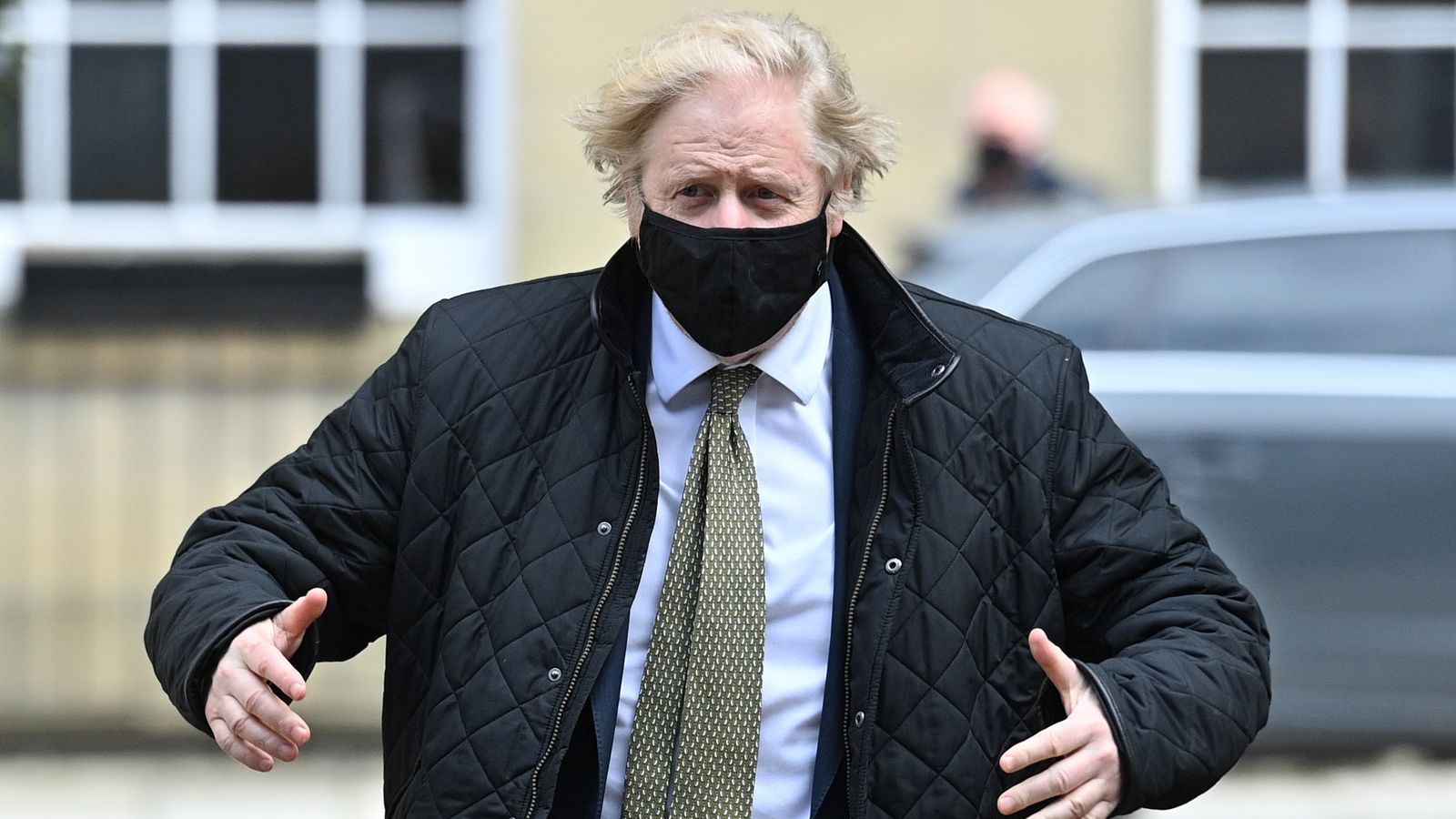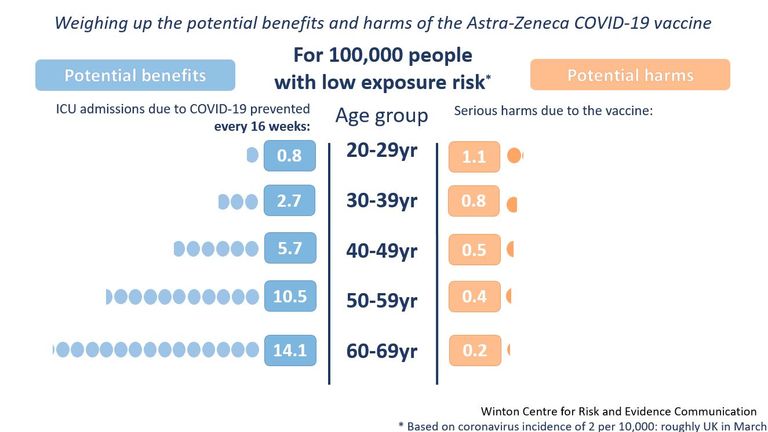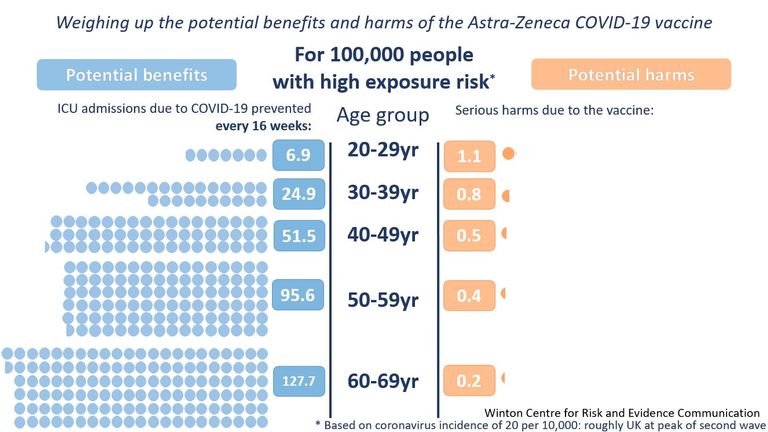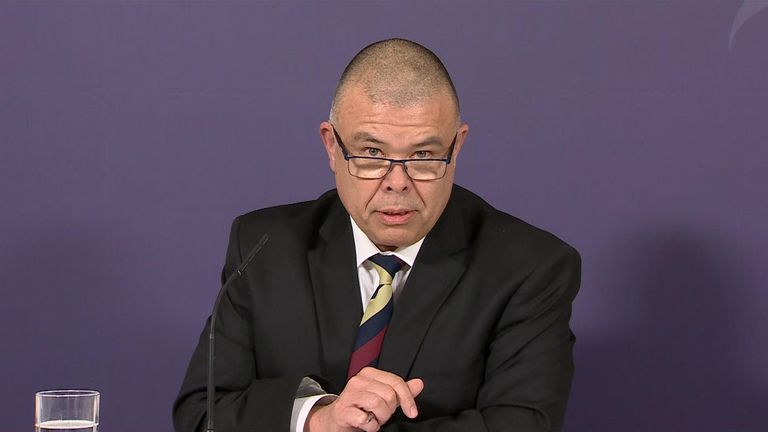Boris Johnson has said the roadmap out of lockdown will not be affected by the decision to offer 18 to 29-year-olds an alternative to the Oxford-AstraZeneca vaccine.
The prime minister added that “nothing he has seen” from government scientists on the possible link between this jab and rare blood clots suggests that plans to ease restrictions will need to be changed.
On Wednesday, the Joint Committee on Vaccination and Immunisation (JCVI) announced that 18 to 29-year-olds should be offered an alternative to Oxford-AstraZeneca when it comes to getting vaccinated.
The new advice is based on the UK regulator’s findings that the COVID-19 vaccine is linked to “extremely rare and unlikely to occur” blood clots with lower platelets.
It comes after 79 people developed blood clots after receiving the jab up until 31 March.
Nineteen of them – including three people under 30 – later died.
According to the Medicine and Healthcare products Regulatory Agency (MHRA), 51 of them were women, and 28 were men.
Speaking on a visit to Newquay Airport in Cornwall, Mr Johnson sought to reassure the public that the Oxford-AstraZeneca vaccine is safe, and urged people who have already had their first jab to make sure they go for their second when they are called to do so.
“It’s pretty clear that the decline in the number of deaths, the decline in the number of hospitalisations is being fuelled… by the rollout of the vaccines,” he said.
“And so it is very important for everybody to continue to get your jab when you’re asked to do it and to get your second jab when you’re asked to to come forward for your turn.”
Speaking at a Downing Street news briefing on Wednesday evening, England’s deputy chief medical officer Professor Jonathan Van-Tam insisted that the new guidance is only a “course correction”.
He said it should have “negligible” to no impact on the “very successful” vaccine rollout, insisting it will continue “full speed ahead”.
Professor Van-Tam claimed it is “quite normal” for medics to change their preferences on how to treat patients and that the “benefits continue to outweigh risks” for all other age groups.
The family of a man who died of a blood clot after getting the Oxford jab has also urged the public not to lose confidence.
Neil Astles, 59, died in hospital on Easter Sunday after getting his first dose on 17 March, The Daily Telegraph reported.
His wife Dr Alison Astles told the newspaper: “If we all have the vaccine, a few of us might have a blood clot but the evidence is that fewer people will die.
“We trust the process, we trust the regulator, and despite what has happened to our family, we don’t want people to be scared off. That’s the message we want to get across.”
When asked about the likelihood of getting a blood clot after a vaccine, MHRA head Dr June Raine said: “The risk is four people in a million.”
Regulators in the UK and the EU have requested AstraZeneca lists the “extremely rare potential side effect” on the vaccine’s labels, but the firm is “actively collaborating” with them.
Dr Raine said anybody suffering the following side effects four days after getting a jab should seek medical attention:
• Headaches
• Blurred vision
• Shortness of breath
• Chest pain
• Leg swelling
• Abdominal pain
• Bruising or pinpoint spots beyond the vaccination site
The JCVI has said people of any age who have received the first dose of the Oxford vaccine should continue to be offered the second dose on schedule.
JCVI chairman Professor Wei Shen Lim said: “We are advising a preference of one vaccine over another vaccine for a particular age group out of utmost caution rather than any serious safety concerns.”
He added that people who are just over 29-years-old should make their decision, but getting the vaccine is much safer than not getting it.
The development comes after several European countries halted the rollout of the Oxford jab over concerns about blood clots in the elderly.
Europe’s regulator has now concluded the benefits of the vaccine outweigh risks for older age groups.




